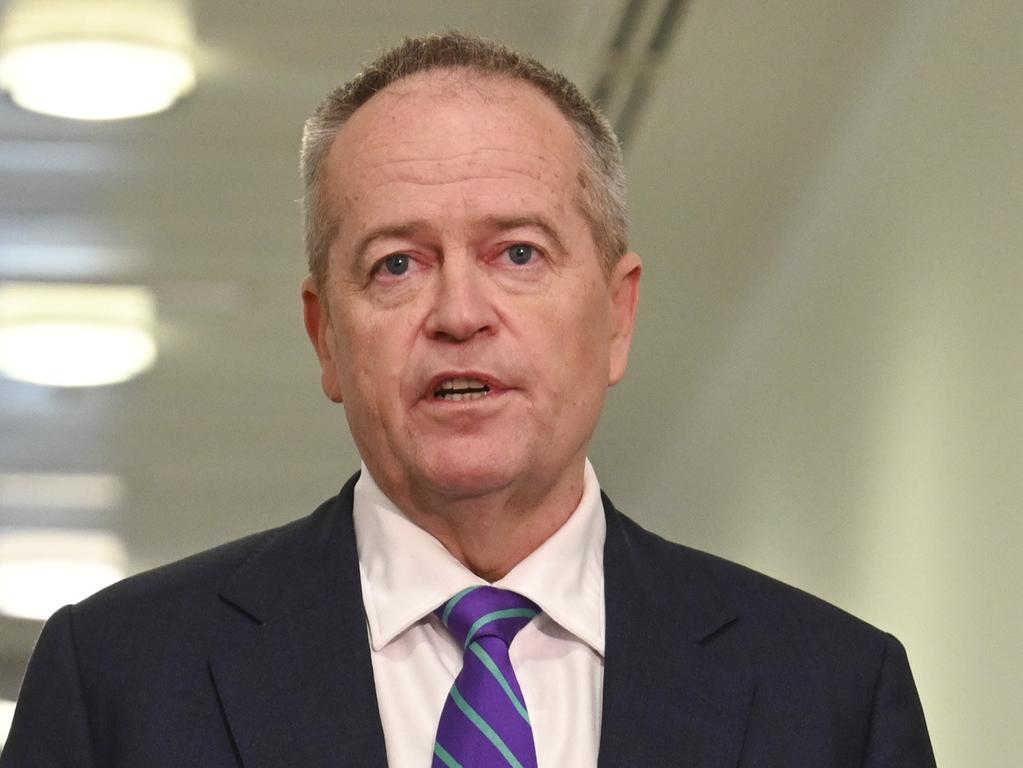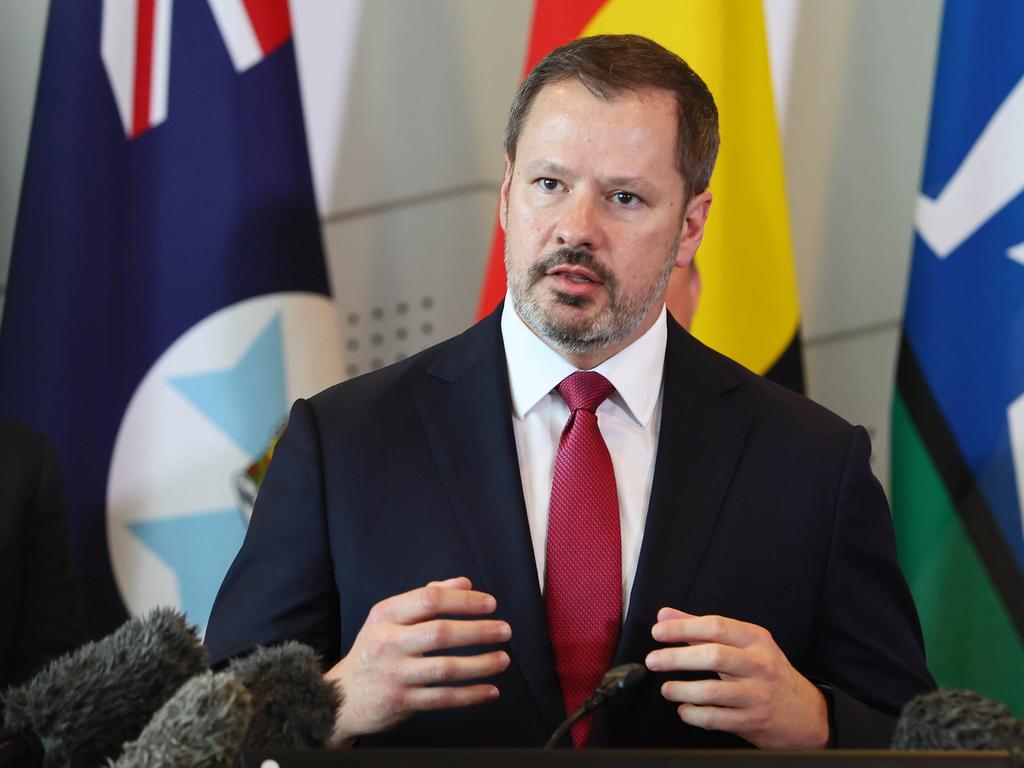Idealism without safeguards and commonsense can be a deadly sin


Yet the Albanese government is bathing in the stuff, submerging the rest of us in it too. Domestically, idealistic policies untethered from reality and from the lessons of the past are everywhere.
It is impossible to go past the voice. When it comes to wanting better lives for our Indigenous people, Australians are on a unity ticket. Perhaps that meant we were predisposed to fall for any cockamamie idea that offered some promise of advancement for a people widely acknowledged to have been left behind. Some prominent and well-meaning people thought the voice was that ticket to betterment. One could hardly find someone less idealistic, for example, than Julian Leeser, former opposition Indigenous Australians spokesman.
However, when the highly radical activists dominating the flow of advice to the Albanese government came up with a ridiculously overreaching proposal that would entrench permanent constitutional rights for Indigenous people and forever hobble our governance, Leeser and the idealists were unable to get off the bus. They had been hijacked by activists, their idealism ridden roughshod over their common sense. Disaster was inevitable, and it came to pass.
The National Disability Insurance Scheme similarly was conceived in a spirit of bipartisan idealism. Undoubtedly Australia needed to do better for its disabled people and Australians were united in their preparedness to pay for it. However, designing a scheme without limits or caps, with grossly defective definitions and pathetically open to abuse, has given us an out-of-control behemoth that threatens to eat up our national budget. The scheme cost taxpayers $42bn this financial year, rising to $90bn by 2031.
The rorting and overreach are so bad even Bill Shorten can see it, with talk finally about cracking down on fraud and changing eligibility criteria. What took them so long? Idealism among many voters that, once enacted, the NDIS was sacred. This particular surrender of common sense is no victimless crime. Every dollar wasted on the fatal flaws of the NDIS is another dollar that could have been used on those disabled people who genuinely need it – or on hospitals and schools.
Industry policy is another piece of foolish idealism run rampant. Business people, or indeed anyone with any knowledge of history or economics, know the phrase “this time its different” is the most dangerous in the investment lexicon.
For the federal and Queensland governments to spend almost $1bn on the PsiQuantum project in the belief that its quantum technology will prevail over all the alternatives (including those of Microsoft, Apple and all the other true giants of the sector) and create a new industry in Queensland boggles belief.
How many schools and hospitals will be sacrificed in pursuit of a bet whose chances seem to resemble last week’s Powerball?
And migration. Where to start? To be fair, at least the ALP seems to have abandoned, however reluctantly, its Rudd-Gillard era flirtation with open borders. Now the gullible idealists, the soppy romanticists, are on the High Court.
Under new management, the High Court in the NZYQ case overturned decades of previous High Court authority to the effect that permanent detention of non-citizen illegal arrivals was permissible because, as justices Sir Gerard Brennan, Sir William Deane and Sir Daryl Dawson had said in the Chu Kheng Lim case, the Crown possessed the “executive powers to exclude, admit and deport”. Predictably, disaster followed.
To fully understand the extent that mushy sentimentality now infects the High Court, one cannot go past Justice James Edelman in the Love case when he declared that a non-citizen criminal who claimed Aboriginal heritage could not be deported as an “alien” because their “genealogy and identity includes a spiritual connection forged over tens of thousands of years between person and Australian land, or ‘Mother Nature’ ”. The 4:3 majority of the court concocted a new constitutional category of “non-citizen, non-alien”.
The magical thinking that drives the transition to net-zero policies of numerous Australian governments is another idealistic folly with danger written all over it. Woodside chief executive Meg O’Neill gave us a pretty good pointer in the right direction when she said the government’s recently announced gas strategy was “really the first time that the federal government has used a data-driven approach and not a wishful thinking approach to outline energy policy”.
However, don’t get your hopes up for rationality. Victorian Energy Minister Lily D’Ambrosio still thinks her federal counterpart is wrong on gas.
Last month brought home how misplaced idealism in international law and transnational bodies is also taking us for a ride.
When the International Criminal Court prosecutor packaged up a request for arrest warrants for Benjamin Netanyahu and his Defence Minister Yoav Gallant and the leaders of Hamas, it became obvious that we should never have signed up to the ICC, and we must now withdraw from it. Days later, former High Court judge Ian Callinan told The Australian “the Albanese government should give immediate notice of its intention to withdraw from the Rome treaty” that established the ICC. Hard-headed rationality should have stopped us signing on in the first place. Former foreign minister Alexander Downer, the prime mover for that foolish decision, admitted that his idealism had been blown up by reality.
The International Court of Justice has also put paid to the idea that international courts are legal rather than political institutions. By requiring Israel to immediately cease its military operation in Rafah, the ICJ has twisted the key definition of genocide in the International Convention on Genocide beyond recognition in pursuit of a political goal.
The convention requires an intention by Israel to destroy the Palestinian people, in whole or in part. If Israel intends to destroy the Palestinian people, as distinct from Hamas, why would it order the evacuation of almost a million people from Rafah and facilitate that happening? It’s a very odd way to commit a planned genocide. The ICJ has deliberately overlooked Hamas’s role in using its own people as human shields.
The ICJ has not the slightest interest in doing what real lawyers do – parsing words for meaning. Instead, its aim is to secure a political objective even if that means the ICJ driving trucks through key definitions in the convention.
Touchingly, many of us have a benevolent view of international courts and international conventions, but events like these reveal them as vehicles for activist judges and lawyers to impose their political views on us.
None of this is to say there is not a place for a certain measured, thoughtful idealism. That is different from unbridled and uncontrolled idealism driven by sentiment and free from analysis. Neither should we let blind faith or ideology drive policy formation. Ignoring the lessons of history – whether in relation to transnational bodies and laws or in domestic policy areas – simply condemns us to repeat past errors. This time will not be different.






Who else has had it up to their eyeballs with idealism and idealists? It shouldn’t be breaking news that the fundamental organising principle of political life, and government policies, is that if you can get taken for a ride, you almost certainly will. Not only is idealism insufficient to secure results, on its own it will often hurt those it aims to help. Without some hard-headed rationality, precautions, safeguards and exit strategies, idealism is folly on steroids.